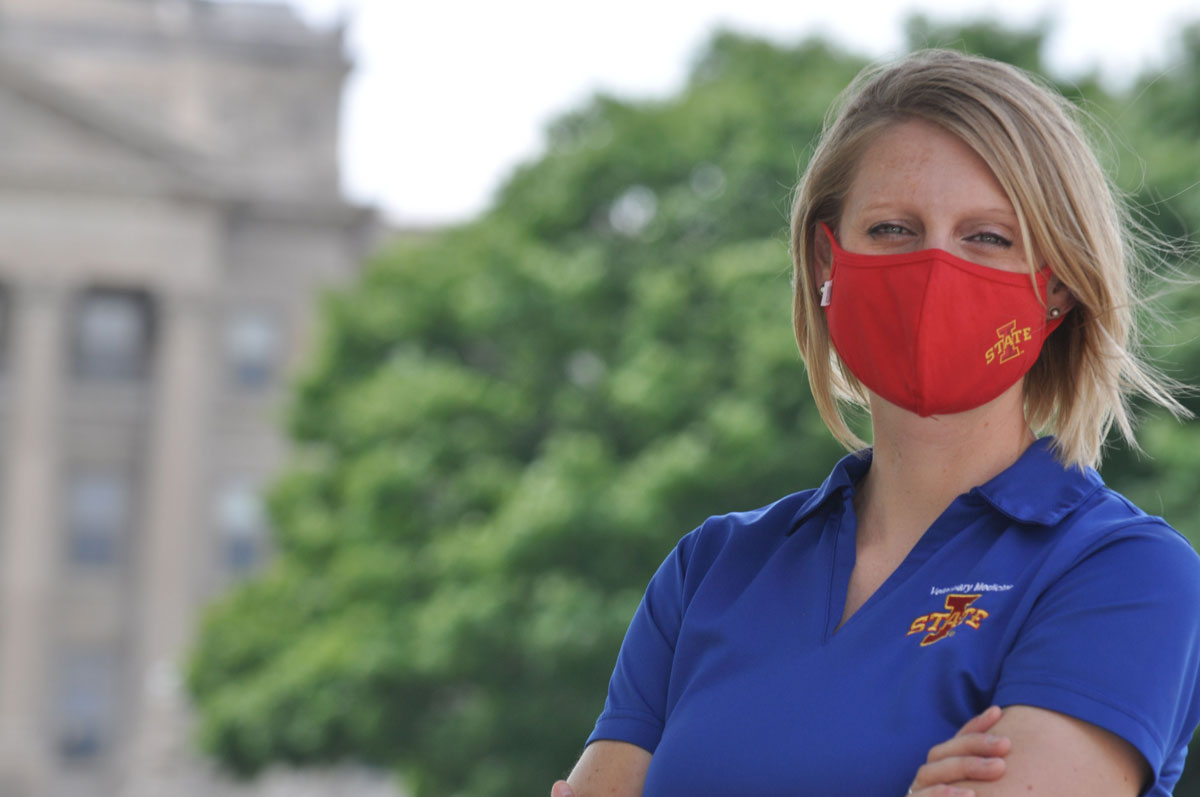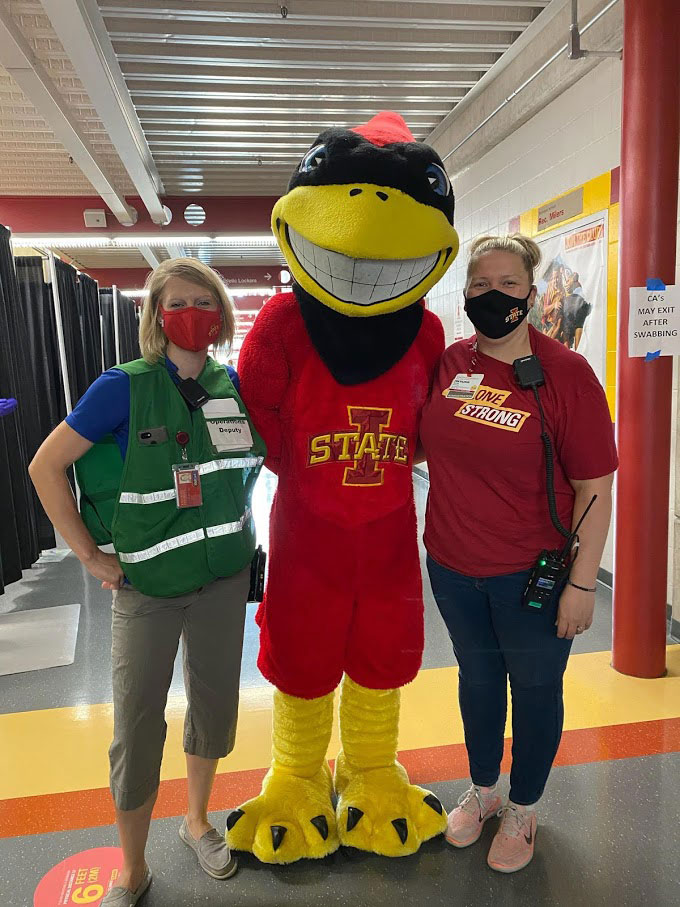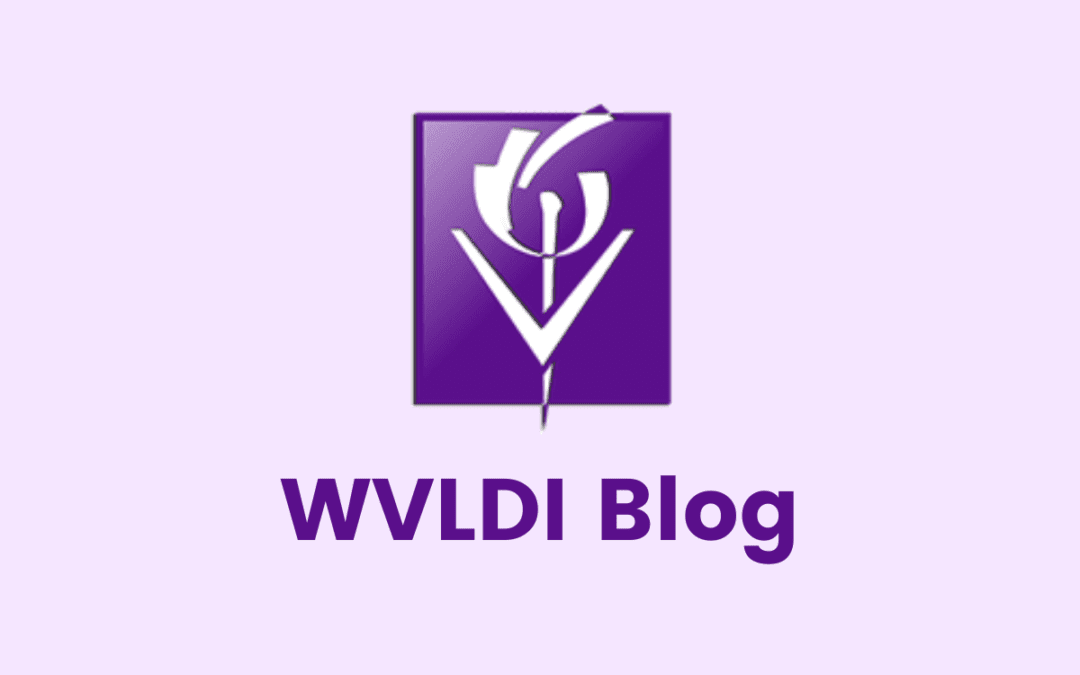I interviewed Kristen Obbink while on family leave after bringing her adopted son home from Africa. She is an amazing veterinarian working in public health to keep Iowans safe during the COVID-19 pandemic and simultaneously keeping a farm and non-profit business running. Her positive energy, despite the challenges of the last year, is contagious!

Why did you want to join WVLDI?
I wanted to join because I am huge proponent of women in leadership roles in veterinary medicine and beyond. I learned about WVLDI through my participation in speaker training by AVMA-WVLDI and then went to several WVLDI networking events, which exposed me to the mission and their work. I see it as an opportunity to promote other women in veterinary medicine leadership roles.
What is your day job?
I am a lead public health veterinarian at the Center for Food Security and Public Health at Iowa State University’s College of Veterinary Medicine. My work involves researching and developing educational resources for both technical and non-technical audiences to aide in the recognition, prevention, and containment of foreign, emerging, zoonotic, and reportable animal diseases and public health threats.
How has your job and life changed in the time of COVID?
In July 2020, I was asked to step into the role of Public Health Coordinator for Iowa State University’s COVID-19 response.

In this role, I helped lead the implementation of the university’s public health plan, communicated outcomes and trends, and provided subject matter expertise to university administration regarding Covid-19. Iowa State set up our own public health system with an incident command structure that worked closely with our local and state public health departments. Our campus student health center also worked closely with our veterinary diagnostic laboratory to conduct our own on-campus testing efforts.
Overall, it was very challenging work but also a really amazing opportunity to contribute and work with people I would not have otherwise met. After working through such a big challenge, I know these relationships will extend beyond COVID-19. The pandemic has really elevated the importance of public health and broken down barriers where people usually would have worked in silos.
What do you love most about being a veterinarian?
I love a lot of things. Our training and skillset open so many opportunities and allow veterinarians to contribute in so many ways. I have worked in private practice, government and academia and have been able to work with people from all different backgrounds.
COVID has really highlighted the important role veterinarians have to play in public health and science. It has been really rewarding to be working in public health during the pandemic and being able to network with people from all over campus and beyond that I would not have otherwise met.
What is the biggest challenge you face as a veterinarian?
Helping people to understand why veterinarians are so important in jobs outside of traditional clinical medicine and that vets have a broad range of skills to offer is sometimes challenging. Our training is unique and our oath to protect public health allows us to contribute in so many ways in addition to caring directly for animals.
What advice would you give to young people who aspire to be veterinarians?
Keep an open mind. When I went to vet school, I was planning on being a small animal practitioner and instead fell into public health and I love it. Don’t be afraid to do things outside of your comfort zone – that’s where I have found the things I am the most passionate about. Write your plans in pencil, you rarely go where you think you are going.
What surprises you about how you got where you are now?
Kind of everything. What I am doing now is not at all what I thought I would be doing, but I love it!
Tell us about your non-veterinary related passion projects/hobbies.
My husband and I just completed a four-year-long international adoption process and brought home our 12-year-old son from Africa. Seeing the world through his eyes and getting to share our passions and hobbies with him has been so inspiring. I am also the founder of the Happy Bottom Homestead, a small farm specializing in honey, free range eggs and natural fibers. Just before COVID hit, I bought Lunchsox, a charitable company that donates proceeds to fight hunger through the sale of natural fiber socks. This year, our hunger cause is “Farms for Orphans”, an organization that works to “alleviate food-insecurity, malnutrition and poverty in vulnerable children in the Democratic Republic of the Congo (DRC) through the introduction of scalable and sustainable farming methods that preserve indigenous traditions of consuming wild-harvested insects, while providing livelihoods for vulnerable women and youth.”

